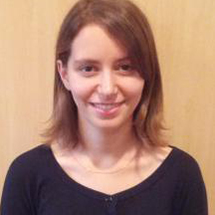
Get ready to accelerate your SAT vocab learning.
When you think of SAT vocabulary, certain words come to mind, but there are two that jump out: “challenging” and “omnipresent.” The vocabulary on the SAT is difficult, and it’s everywhere. Though at first glance the test has only a handful of fill-in-the-blank vocabulary questions, there are many questions about vocabulary throughout the reading comprehension section as well. And they’re not just about words in the text you can pick from context clues either—there are vocabulary questions about tone and style, and sometimes, the tough vocabulary is inside the question itself! So if you’re a student preparing for the SAT, you have to ask yourself: how do I actually study vocabulary?
1. Read
One of the best ways to build your vocabulary is to read. When you’re studying for the SAT, Cambridge Coaching recommends that students pick a challenging book to read every day as they study. However, you also need to a pick a book that interests you, not only so you can approach your reading without a sense of dread (it doesn’t have to be War & Peace!), but also so you can remember it later!
2. Flashcards and Flashcards 2.0
In order to retain vocabulary, you have to do more than read it—you also have to write it! (See my previous post about studying and writing.) Flashcards are the oldest trick in the book for a reason: they work. The act of creating flashcards will help you as much as the flashcards themselves. All SAT books include some vocabulary lists to help you study, and Cambridge Coaching SAT verbal tutors provide vocabulary lists of the most popular SAT vocabulary words. You should also customize your list to include unknown words as you encounter them in study and prep materials—anything you have to look up—and common word roots with examples you already know, so you can figure out unknown words in the future.
Two ways to make flash cards:
If you like to write your flashcards longhand, you can make them the old school way, with notecards and a pen. But if you like to use technology, you should look at Quizlet.com. A free website for flashcards, Quizlet will allow you to create an online flashcard set and create different kinds of customized tests and games. It also has an app for smart phones, so you can take your digital flashcard set with you, just like a hardcopy one.
3. Make a plan and stick to it
Don’t try to make all your flashcards at once! It is impossible to learn all your vocabulary in one go, especially the last week before your test. Instead, before you start studying for the test, take the number of words on your initial vocabulary list and divide it by the number of weeks you have until the test. The answer you get is the number of words you should add each week to your flashcard set—ideally, you should be working on as few as 10 new words per day. As you go along, you should also add the words that come up on your practice SAT material. Building up your vocabulary slowly ensures that you’ll actually absorb it!
Once you have your list for the week, find a time to fit them into your daily routine. Are you studying for the SAT in New York City? Take your flashcards on the subway. Do you take the bus to or from school? Run through flashcards there. Pick a consistent part of your existing schedule and work in your flash cards, so they become as much a part of your daily routine as anything else. And if it seems impossible to memorize every single word, remember: the goal isn’t to memorize every single word. The goal is to give you the best possible chance of recognizing tough words on test day, and having just enough familiarity with them to get the question right.
To reach private SAT tutors in Boston, NYC, or online, contact Cambridge Coaching for more information. And for more relevant reading about SAT tutoring, check out these other blog posts, written by our SAT tutors]: What Will the Vocab on the New SAT be Like?, How to Learn Vocab Without Going Nuts, and The Importance of Questioning Your Answers


Comments